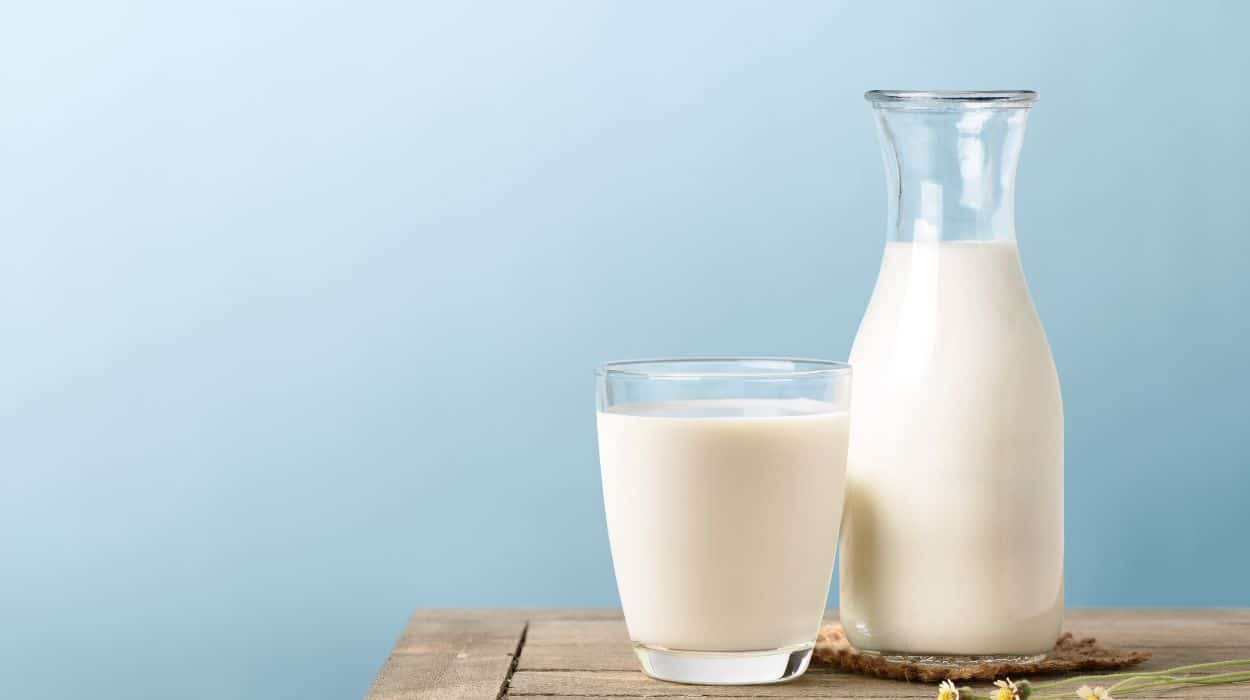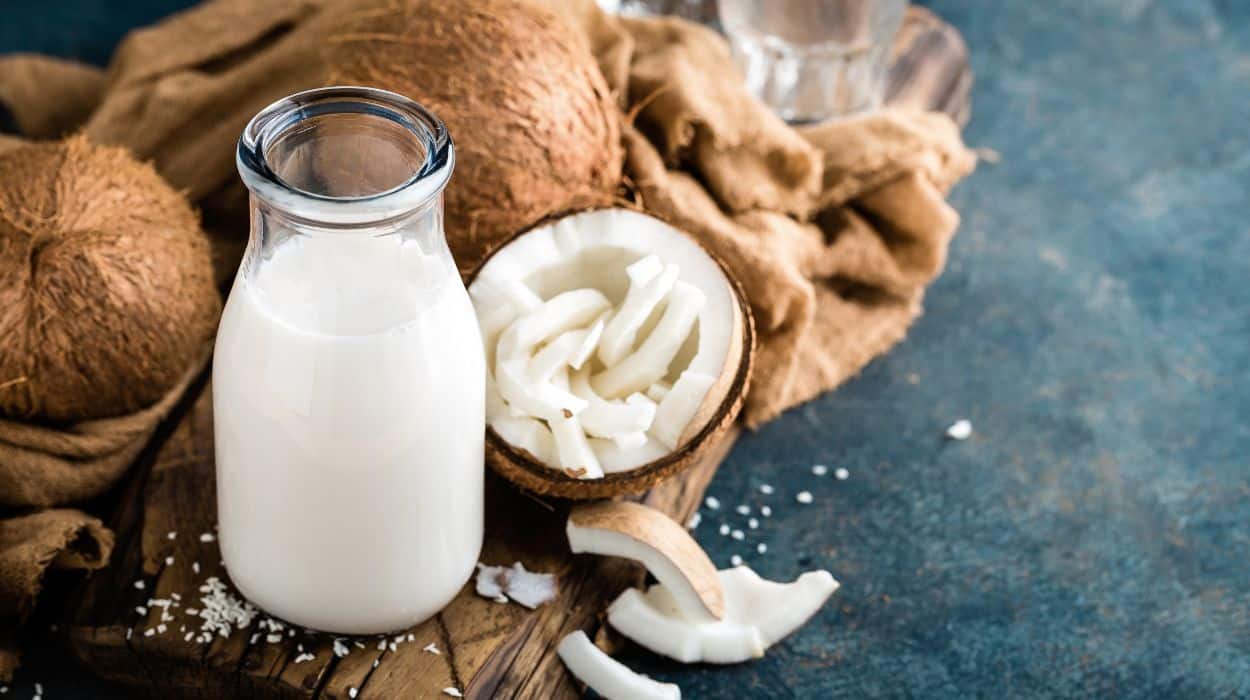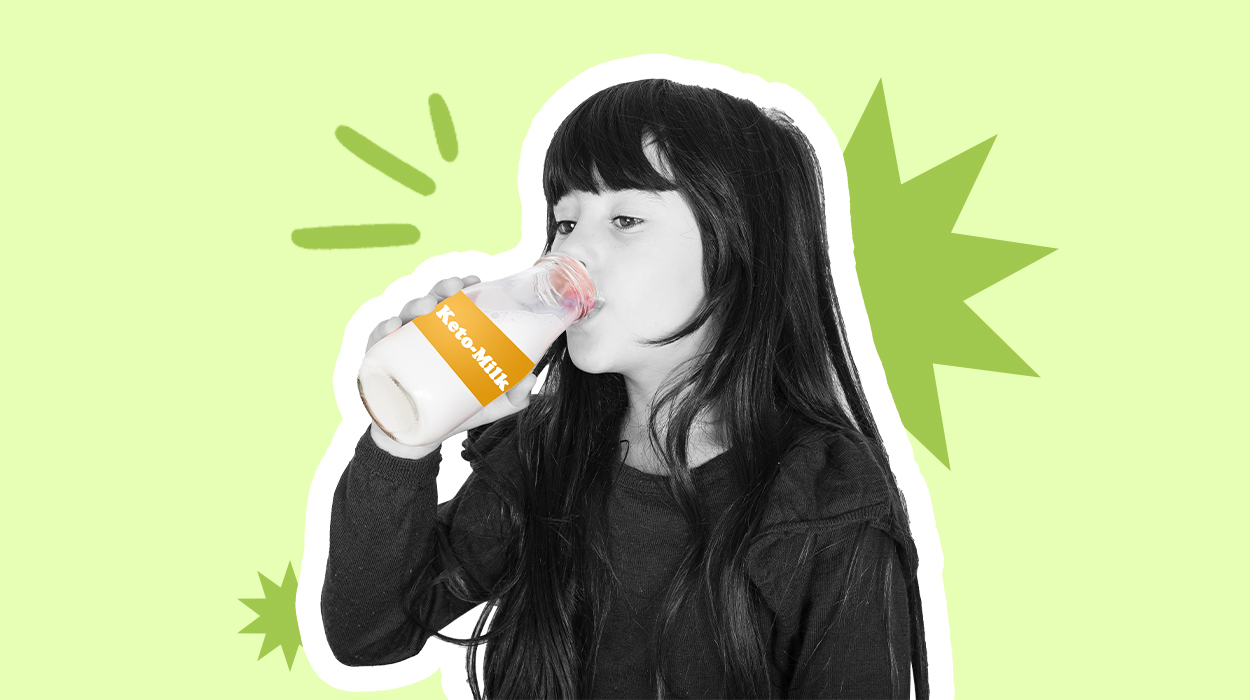Milk is a nutritious staple in many diets. However, it often poses a question when it comes to the ketogenic diet. Is traditional cow’s milk keto-friendly, or should you choose dairy-free alternatives?
This article aims to address these concerns about milk on keto. You will learn about the best types of milk for keto, the carb content in various kinds of milk, and how to navigate your choices for optimal health and weight loss.
Whether you’re a seasoned keto dieter or a beginner, this guide will provide valuable insights into the question of milk for keto.
Is Milk Keto?
Milk on a keto diet can be a tricky subject. Regular cow’s milk is often high in carbs, making it a poor choice. Unsweetened, low-carb milk alternatives like almond, coconut, and macadamia nut milk can be keto-friendly.
Can You Drink Milk On A Keto Diet?

So, is traditional raw cow’s milk keto-friendly? Let’s explore why it’s not the best choice.
Role Of Milk In A Typical Diet
In a regular diet, milk is a go-to source[1] of nutrients like calcium, vitamin D, and protein. However, its compatibility with a keto lifestyle is questionable due to its high net carbs per cup.
Carb Content In Regular Milk
One cup of whole cow’s milk contains around 12 grams of carbs, mainly from lactose (milk sugar). You can usually have 20 to 50 grams of net carbs per day on a keto diet. That means that a single cup of regular milk can be half of your carbs for the day!
The Impact Of Milk On Ketosis
The high carb content means drinking cow’s milk could knock you out of ketosis and slow or stop your weight loss. Plus, many people can’t digest lactose, which can result in an upset stomach. So, while the answer to the question, “Is milk good for you?” is usually yes, there are better alternatives for milk for keto.
Quick Overview Of The Keto Diet
Before we delve into the specifics of consuming milk on keto, it’s essential to grasp the core principles of this strict diet.
The Concept Of Ketosis
The ketogenic diet[2] is a low-carb, high-fat diet designed to put your body into a metabolic state called ketosis. When your body doesn’t have enough glucose for energy, it burns stored fats instead, producing ketones. This process, known as ketosis, can lead to rapid weight loss and other health benefits.
Foods To Eat And Avoid On Keto
Embracing a keto lifestyle means prioritizing foods high in healthy fat content and low in carbs.
Foods that cut include meat, fish, avocados, eggs, and certain dairy products like cheese and butter. Vegetables that grow above ground, such as leafy greens, are also keto-friendly due to their low net carb count.
Conversely, foods high in carbs like grains, sugar, most fruits, and yes, traditional cow’s milk, should be limited or avoided to maintain ketosis.
Keto-Friendly Milk Options
There isn’t just one “best milk for keto.” Several delicious alternative milks are not just keto-friendly but also offer a range of flavors and nutritional benefits.
Almond Milk
Keto dieters often choose unsweetened almond milk. It’s low in calories and carbs, making it easy to incorporate into your daily carb allotment, and good for weight loss. Plus, it’s a good source of vitamin E. An 8 oz serving contains 30-50 calories, 1-2 grams of net carbs, 2-3 grams of fat, and 1 gram of protein.
Coconut Milk

Full-fat coconut milk, especially the canned type, is another popular option. An 8 oz serving of unsweetened canned coconut milk contains around 445 calories, 6 grams of net carbs, 48 grams of fat, and 5 grams of protein.
This makes coconut milk keto, and it’s a good choice if you’re struggling to get enough grams of fat in your diet. Although it’s a higher-calorie option compared to other alternatives.
Macadamia Nut Milk
Macadamia nut milk is a creamy, flavorful option that’s high in healthy fats and low in carbs. An 8 oz serving of unsweetened macadamia milk usually contains about 50 calories, 1 gram of net carbs, 5 grams of fat, and 1 gram of protein.
Flax Milk
Unsweetened flax milk[3] is a dairy-free, nut-free milk alternative rich in omega-3 fatty acids. It’s also low in calories and carbs. An 8 oz serving has approximately 25 calories, 1 gram of net carbs, 2.5 grams of fat, and 0 grams of protein.
Soy Milk
Unsweetened soy milk is a good plant-based source of protein and is also low in carbs. An 8 oz serving contains around 80-100 calories, 2-4 grams of net carbs, 4-5 grams of fat, and 7-9 grams of protein.
Cashew Milk
Cashew milk has a creamy texture and is lower in calories and carbs. An 8 oz serving of unsweetened cashew milk contains about 25-50 calories, 1-2 grams of net carbs, 2-4 grams of fat, and 1 gram of protein.
Pea Milk
Pea milk, a relatively new player in the non-dairy milk market, offers a good amount of protein and is low in carbs. An 8 oz serving of unsweetened pea milk contains about 70 calories, less than 1 gram of net carbs, 4.5 grams of fat, and 8 grams of protein.
Heavy Cream Milk
Heavy cream diluted with water can serve as a high-fat, low-carb milk alternative. It’s higher in calories than most options, though, so it may not be the best milk for weight loss. An 8 oz serving made with 1 oz heavy cream and 7 oz water contains around 103 calories, 1 gram of net carbs, 11 grams of fat, and 1 gram of protein.
These keto milk alternatives are just the beginning. There are plenty of other options available. The key is to choose unsweetened versions to keep the carb count low.
Types Of Milk You Should Avoid While On A Keto Diet
Even with the various keto milk options available, there are certain types of milk you should steer clear of while following a keto diet. The high carb content in these varieties can easily kick you out of ketosis.
- Whole cow’s milk is good for you, but its carb content is too high for a standard keto diet. An 8 oz serving contains about 150 calories, 12 grams of carbs, 8 grams of fat, and 8 grams of protein.
- Oat milk is a favorite for many due to its creamy texture and taste. But it’s high carb, so it’s not good for keto. An 8 oz serving contains around 120 calories, 16 grams of carbs, 5 grams of fat, and 3 grams of protein.
- Rice milk is low in fat and protein and extremely high in carbs, making it a terrible choice for keto. An 8 oz serving has about 120 calories, 22 grams of carbs, 2 grams of fat, and less than 1 gram of protein.
- Goat’s milk has a similar carb profile to cow’s milk and is equally unsuitable for keto. An 8 oz serving contains about 170 calories, 11 grams of carbs, 10 grams of fat, and 9 grams of protein.
- Sweetened condensed milk is a no-go for keto due to its insanely high sugar content. An 8 oz serving has about 980 calories, 166 grams of carbs, 27 grams of fat, and 20 grams of protein.
When considering which milk to include in your diet, always check the net carb count per serving and adjust accordingly to stay within your daily carb intake.
Conclusion
While traditional dairy milk is not a good choice due to its high carb content, you’ve got options. From unsweetened almond milk to full-fat coconut milk, various keto-friendly alternatives are available to satisfy your milk cravings. With careful planning, you can continue to enjoy milk-like beverages while staying in ketosis.
Frequently Asked Questions
It depends on the type of milk. Traditional dairy milk is high in carbs and should be avoided, but low-carb milk alternatives, like unsweetened almond milk, are suitable choices.
There are several keto milk options, including but not limited to almond milk, coconut milk, and even heavy cream.
It depends on the type of milk and your daily carb intake. Remember to factor in the net carbs per serving of your chosen milk. If you want to drink regular cow’s milk, you should probably have less than a cup.
Yes, as long as you choose low-carb milk alternatives and stay within your carb limit.
Lactose-free milk usually is no better or worse than regular cow’s milk, which is not recommended on the keto diet. But you should check the label, as some brands may add sugar to compensate for the lack of lactose.
Whole milk is a better option for keto than reduced fat, but cow’s milk is generally high in carbs and is typically not recommended for a keto diet.
 Expert's opinion
Expert's opinion
